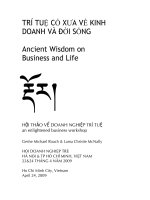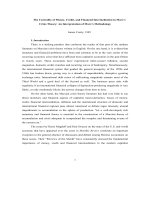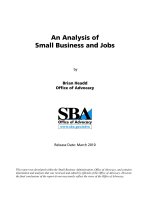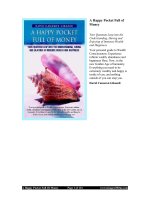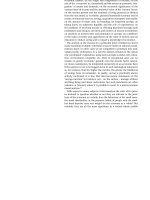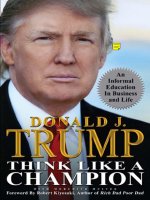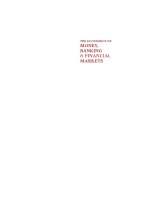Enough true measures of money business and life
Bạn đang xem bản rút gọn của tài liệu. Xem và tải ngay bản đầy đủ của tài liệu tại đây (1.08 MB, 291 trang )
Enough.Enough.Enough.Enough.Enoug
Enough.Enough.Enough.Enough.Enoug
Enough.Enough.Enough.Enough.Enoug
“Rarely do so few pages provoke so much thought. Read this book.”
Enough.Enough.Enough.Enough.Enoug
Enough.Enough.Enough.Enough.Enoug
Enough.Enough.Enough.Enough.Enoug
Enough.Enough.Enough.Enough.Enoug
Enough.Enough.Enough.Enough.Enoug
Enough.Enough.Enough.Enough.Enoug
Enough.Enough.Enough.Enough.Enoug
Enough.Enough.Enough.Enough.Enoug
Enough.Enough.Enough.Enough.Enoug
Enough.Enough.Enough.Enough.Enoug
True Measures of Money, Business, and Life
Enough.Enough.Enough.Enough.Enoug
Enough.Enough.Enough.Enough.Enoug
Enough.Enough.Enough.Enough.Enoug
Enough.Enough.Enough.Enough.Enoug
Enough.Enough.Enough.Enough.Enoug
Enough.Enough.Enough.Enough.Enoug
Enough.Enough.Enough.Enough.Enoug
Enough.Enough.Enough.Enough.Enoug
Founder and former CEO of the Vanguard Mutual Fund Group
Enough.Enough.Enough.Enough.Enoug
—DAVID F. SWENSEN, Chief Investment Officer, Yale University
Enough.
JOHN C. BOGLE
Praise for Enough.
“Jack Bogle’s passionate cry of Enough. contains a thoughtprovoking litany of life lessons regarding our individual
roles in commerce and society. Employing a seamless mix
of personal anecdotes, hard evidence, and all-too-oftenunderrated subjective admonitions, Bogle challenges each
of us to aspire to become better members of our families,
our professions, and our communities. Rarely do so few
pages provoke so much thought. Read this book.”
—David F. Swensen
Chief Investment Officer
Yale University
“Enough. gives new meaning to the words ‘commitment,’ ‘accountability,’ and ‘stewardship.’ Bogle writes with
clarity and passion, and his standards make him a role
model for all of us. Enough. is must reading for millions
of U.S. investors disenchanted by today’s culture of greed,
accounting distortions, corporate malfeasance, and oversight failure.”
—Arthur Levitt
Former Chairman
U.S. Securities and Exchange Commission
“Jack Bogle’s wonderful, thoughtful, helpful, and funfilled little book inspired me to create my own title: Never
Enough of Jack Bogle! ”
—Peter L. Bernstein
Author of Capital Ideas Evolving and Against the Gods
“Jack Bogle, the ‘conscience of Wall Street,’ single-handedly
founded the Vanguard Group—still the nation’s only mutual
mutual fund organization—and then grew it into the gentle giant that funds the retirements, educations, and philanthropic goals of millions of Americans. Now, in Enough., he
distills his half-century of observations on the capital markets, and on life in general, into a few hundred entertaining
pages—required reading for those concerned about their
own future, their family’s future, and the nation’s future.”
—William J. Bernstein
Author of A Splendid Exchange and The Four Pillars of Investing
“This is an impressive message from a distinguished businessman. It will challenge all decision makers to consider
the sufficiency and direction of their lives and work. What
do we mean by Enough? Enough of what? Enough for what
purpose? Feast here and reflect.”
—Robert F. Bruner
Dean and Charles C. Abbott Professor of Business
Administration, Darden Graduate School of Business
University of Virginia
“What went wrong? What can, and should, go right? The
great Jack Bogle has the answers. Enough. will leave you
hungry for more.”
—James Grant
Editor of Grant’s Interest Rate Observer
“From one ‘battler’ to another: Thank you for putting
in one little book the premise for an active, long life. A
primer for those who will abjure complacency and just
wanting more, who’d rather focus on the joy of trying to
move some ball downfield.”
—Ira Millstein
Senior Partner, Weil Gotshal & Manges LLP
“The balances one must create in investing, in running a
business, and in life more generally are simply and clearly
stated in Jack’s most recent book, Enough. Unfortunately
there are not enough Jack Bogles around in today’s world
of instant gratification. Enough. should be must reading
for business students and corporate board members.”
—David L. Sokol
Chairman, MidAmerican Energy Holdings Company
Enough.
Enough.
True Measures of
Money, Business,
and Life
John C. Bogle
John Wiley & Sons, Inc.
Copyright © 2009 by John C. Bogle. All rights reserved.
Published by John Wiley & Sons, Inc., Hoboken, New Jersey.
Published simultaneously in Canada.
No part of this publication may be reproduced, stored in a retrieval system, or
transmitted in any form or by any means, electronic, mechanical, photocopying,
recording, scanning, or otherwise, except as permitted under Section 107 or 108 of the
1976 United States Copyright Act, without either the prior written permission of
the Publisher, or authorization through payment of the appropriate per-copy fee to the
Copyright Clearance Center, Inc., 222 Rosewood Drive, Danvers, MA 01923,
(978) 750-8400, fax (978) 646-8600, or on the web at www.copyright.com. Requests to
the Publisher for permission should be addressed to the Permissions Department, John
Wiley & Sons, Inc., 111 River Street, Hoboken, NJ 07030, (201) 748-6011,
fax (201) 748-6008, or online at />Limit of Liability/Disclaimer of Warranty: While the publisher and author have used
their best efforts in preparing this book, they make no representations or warranties with
respect to the accuracy or completeness of the contents of this book and specifically
disclaim any implied warranties of merchantability or fitness for a particular purpose. No
warranty may be created or extended by sales representatives or written sales materials.
The advice and strategies contained herein may not be suitable for your situation.You
should consult with a professional where appropriate. Neither the publisher nor author
shall be liable for any loss of profit or any other commercial damages, including but not
limited to special, incidental, consequential, or other damages.
For general information on our other products and services or for technical
support, please contact our Customer Care Department within the
United States at (800) 762-2974, outside the United States at (317) 572-3993
or fax (317) 572-4002.
Wiley also publishes its books in a variety of electronic formats. Some content that
appears in print may not be available in electronic books. For more information about
Wiley products, visit our web site at www.wiley.com.
Library of Congress Cataloging-in-Publication Data:
Bogle, John C.
Enough : true measures of money, business, and life / John C. Bogle.
p. cm.
Includes index.
ISBN 978-0-470-39851-7 (cloth)
1. Finance. 2. Investments. 3. Business. 4. Value. I. Title.
HG173.B595 2009
650.1—dc22
2008036137
Printed in the United States of America.
10 9 8 7 6 5 4 3 2 1
Contents
Introduction
1
MONEY
CHAPTER 1
CHAPTER 2
CHAPTER 3
Too Much Cost,
Not Enough Value
Too Much Speculation,
Not Enough Investment
Too Much Complexity,
Not Enough Simplicity
29
49
71
BUSINESS
CHAPTER 4
CHAPTER 5
CHAPTER 6
CHAPTER 7
Too Much Counting,
Not Enough Trust
Too Much Business Conduct,
Not Enough Professional
Conduct
Too Much Salesmanship,
Not Enough Stewardship
Too Much Management,
Not Enough Leadership
97
120
141
159
LIFE
Too Much Focus on Things,
Not Enough Focus
on Commitment
CHAPTER 9 Too Many Twenty-FirstCentury Values,
Not Enough EighteenthCentury Values
CHAPTER 10 Too Much “Success,”
Not Enough Character
CHAPTER 8
183
193
211
WRAPPING UP:
WHAT’S ENOUGH?
What’s Enough For Me? For You?
For America?
229
Afterword: A Personal Note
about My Career
249
Acknowledgments
253
Notes
257
Index
267
The Great Seduction
The people who created this country built a moral
structure around money. The Puritan legacy inhibited
luxury and self-indulgence. Benjamin Franklin spread
a practical gospel that emphasized hard work, temperance, and frugality. Millions of parents, preachers, newspaper editors, and teachers expounded the message.The
result was quite remarkable.
The United States has been an affluent nation since
its founding. But the country was, by and large, not
corrupted by wealth. For centuries, it remained industrious, ambitious, and frugal.
Over the past 30 years, much of that has been shredded. The social norms and institutions that encouraged
frugality and spending what you earn have been undermined. The institutions that encourage debt and living
for the moment have been strengthened. The country’s
moral guardians are forever looking for decadence out of
Hollywood and reality TV. But the most rampant decadence today is financial decadence, the trampling of decent norms about how to use and harness money.
David Brooks
THE NEW YORK TIMES
June 10, 2008
Introduction
A
t a party given by a billionaire on Shelter Island, Kurt
Vonnegut informs his pal, Joseph Heller, that their
host, a hedge fund manager, had made more money in a
single day than Heller had earned from his wildly popular
novel Catch-22 over its whole history. Heller responds, “Yes,
but I have something he will never have . . . enough.”
Enough. I was stunned by the simple eloquence of that
word—stunned for two reasons: first, because I have been
given so much in my own life and, second, because Joseph
Heller couldn’t have been more accurate. For a critical
element of our society, including many of the wealthiest
and most powerful among us, there seems to be no limit
today on what enough entails.
We live in wonderful and sad times—wonderful in
that the blessings of democratic capitalism have never
been more broadly distributed around the globe, sad in
that the excesses of that same democratic capitalism have
rarely been more on display. We see the excesses most
starkly in the continuing crisis (that is not an extreme
1
2
ENOUGH
.
description∗ ) in our overleveraged, overly speculative
banking and investment banking industries, and even in
our two enormous government-sponsored (but publicly
owned) mortgage lenders, Fannie Mae and Freddie Mac,
to say nothing of the billion-dollar-plus annual paychecks
that top hedge fund managers draw and in the obscene
(there is no other word for it) compensation paid to the
chief executive officers of our nation’s publicly held corporations—including failed CEOs, often even as they are
being pushed out the door.
But the rampant greed that threatens to overwhelm
our financial system and corporate world runs deeper than
money. Not knowing what enough is subverts our professional values. It makes salespersons of those who should be
fiduciaries of the investments entrusted to them. It turns a
system that should be built on trust into one with counting as its foundation. Worse, this confusion about enough
leads us astray in our larger lives. We chase the false rabbits of success; we too often bow down at the altar of the
transitory and finally meaningless and fail to cherish what
is beyond calculation, indeed eternal.
That message, I think, is what Joseph Heller captured
in that powerful single word enough—not only our worship
∗
According to the International Monetary Fund, it is “the biggest
financial crisis in the United States since the Great Depression.”
Introduction
3
of wealth and the growing corruption of our professional
ethics but ultimately the subversion of our character and
values. And so that’s where I want to start, with what
I know best: how my own life has shaped my character and values, and how my character and values have
shaped my life. As you will see, I’ve been given enough
in countless ways.
Growing Up
Perhaps the best place to begin is with my heritage: heavily Scottish, which may be enough to explain my apparently legendary thriftiness. The Armstrongs—ancestors of
my grandmother on my mother’s side—came to America
from Scotland in the early 1700s to farm here (a wonderful
reminder that nearly all of us are descendants of immigrants).
I’ve always thought of my great-grandfather—Philander
Banister Armstrong—as my spiritual progenitor. He was
an industry leader, but did his best to reform first the
fire insurance industry (in an 1868 speech in St. Louis,
he implored, “Gentlemen, cut your costs”), and then
the life insurance industry. His spirited 1917 diatribe—
258 pages long—was entitled A License to Steal: How the
Life Insurance Industry Robs Our Own People of Billions. The
final sentence: “The patient [the insurance industry] has a
cancer. The virus is in the blood. He is not only sick unto
4
ENOUGH
.
death, but he is dangerous to the community. Call in the
undertaker.”
The Hipkins family—my mother’s family—were Virginians who also came to America early in the eighteenth
century; some of their progeny would serve in the
Confederate States Army. My Hipkins grandparents, John
Clifton Hipkins (“The Skipper”) and Effie Armstrong
Hipkins (“Chick”), were colorful characters who expected
their three children and six grandchildren to be good citizens and to make the most of themselves.
William Brooks Bogle and his wife Elizabeth also
arrived here from Scotland, but much later, during the
early 1870s. Although Ellis Island was not yet the port of
entry, their names are on a plaque there. Their son (and
my grandfather) William Yates Bogle was a successful merchant in Montclair, New Jersey, highly respected in the
community, and the founder of a company that became
part of the American Can Company (which in turn
became Primerica Corporation in 1987), large enough
to be among the 30 stocks in the Dow Jones Industrial
Average for 75 years.
His son, William Yates Bogle Jr., was my father. At the
start of World War I—before the United States declared
war—he volunteered to serve in the Royal Flying Corps
and flew a Sopwith Camel. This dashing pilot, handsome
to a fault, was said to resemble the then Prince of Wales,
Introduction
5
who became king of England in 1936 (before abdicating to marry “the woman I love”). My father was injured
when his plane crashed, and he returned home, marrying
my mother, Josephine Hipkins Bogle, in 1920.
Life was easy for the well-to-do young couple,
but sadly, their first two children (twins, Josephine and
Lorraine) died at birth. Their first son was my brother
William Yates Bogle III, born in 1927, shortly followed
by another set of twins on May 8, 1929, David Caldwell
Bogle and me, John Clifton Bogle.
No Idle Hands
We were born some years after my Bogle grandfather had
provided a handsome new home for the growing family
in Verona, New Jersey (abutting Montclair). But the Great
Crash came, and soon both my home and my father’s
inheritance were gone. We moved into my mother’s parents’ house, the first of the frequent moves that were to
send the struggling family up and down the Jersey coast.
So while my family began with enough—in fact,
much more than enough—we soon were in difficult
financial straits. (My father, having grown up surrounded
by the good things of the era, lacked the determination
of his father, and struggled to hold a job.) From an early
age, all three boys had to earn what they got. How well
6
ENOUGH
.
I remember the constant refrain, “Idle hands are the tools
of the devil” (pronounced, in the Scots way, divil ).
I’ve often thought that we three brothers had the perfect growing-up environment: a family with community
standing and never a concern about being inferior or disrespected, yet with the need to take responsibility for our
own spending money (and even to help fund the family
exchequer), the initiative to get jobs, and the discipline of
working for others. While we had wonderful friends—still
friends today—who had more than enough and who played
while we worked, we learned early on the joy of accepting
responsibility, of using our wits, and of engagement with the
people (rich and far from rich alike) whom we served in
our various jobs, winter, summer, spring, and fall.
Blair Academy: “Come, Study, Learn”
In seventh and eighth grades, we twins attended a small
grammar school in Spring Lake, New Jersey; we then
moved on to nearby Manasquan High School. But my
mother, ambitious for her sons and deeply concerned that
we weren’t getting the best of schooling, sought something much better. Through her persistence and determination, all three Bogle boys became boarding students at
Blair Academy in northwestern New Jersey—an incredible opportunity to begin a fine education. It was my
Introduction
7
mother’s drive for her boys’ education that overcame our
lack of money, and Blair provided us with scholarships and
jobs. In my first year, I waited on tables and, as a senior,
rose to the demanding job of captain of the waiters.
Blair’s motto (translated from the Latin) is “Come,
Study, Learn,” and so I did. Pushed by demanding oldschool masters who seemed to sense that I could, with great
effort, excel—although the classwork was far more demanding than any I’d ever before encountered—I gradually managed to overcome my early lag in studies. At graduation,
I was class salutatorian, and was voted “Best Student” and
“Most Likely to Succeed,” accolades that may hint at both
the determination that I still can’t seem to shake and, perhaps, the entrepreneurial spirit that would later shape my
career. I’ll never forget the inspiration that I received when
in my junior year I read this sentence in Thomas Macaulay’s
essay on Samuel Johnson: “The force of his mind overcame
his every impediment.”
So my attitude to what’s enough in this life, I think,
has been largely shaped by my heritage and the experiences of my youth, not least among them being blessed
by a strong family: proud grandparents, loving parents, and
a marvelous brotherhood of three who fought with each
other but were united when others wanted to take us on.
That combination might well have led nowhere; after
all, the Bogle boys were hardly worse off than countless
8
ENOUGH
.
numbers of other American youths. But as I reached
toward maturity and ever after, I have been blessed with
infinite good fortune in my life, often of miraculous
dimension. Surely my first major break was when Blair
Academy accepted the responsibility for my education.
Without these breaks, who knows where I’d be (indeed,
as you’ll soon learn, even if I’d be) today? I have come to
refer to each turn of good fortune as akin to discovering a
diamond. Over the course of my life, as it has turned out,
I would discover “acres of diamonds.”
Acres of Diamonds
In ancient Persia, a wealthy farmer leaves his home
to seek even greater wealth, and spends his life in a
fruitless search for a perhaps mythical diamond mine.
Finally, as age and years of frustration take their toll, he
throws himself into the sea and dies, an unhappy pauper far from home. Meanwhile, back at his estate, the
new owner, surveying his vast acreage, sees something in
a stream, something bright, glistening in the sunlight. It
is a large diamond, and turns out to rest atop the fabulous Golconda mine.
This story was a special favorite of Dr. Russell
Conwell, who founded Philadelphia’s Temple University
Introduction
9
in 1884. The story inspired his classic lecture, “Acres of
Diamonds,” which he delivered more than 6,000 times, all
the world over. The moral of the story: “Your diamonds
are not in far distant mountains or in yonder seas; they are
in your own backyard, if you but dig for them.”
The very first student at what would become
Temple was so inspired by the speech that he came to
Dr. Conwell, eager for an education but unable to pay
for one. Accepted on the spot for tutelage, the man went
on to rise to a position of eminence and public service.
I have no trouble believing that story because when, as a
young man, I first read Dr. Conwell’s lecture, its message
also inspired me, even as it continues to inspire me today.
And all of those fortunate discoveries of one diamond
after another took place right in my own backyard, in a
city in which I’d never before set my foot.
Coming to Philadelphia
It was just before Thanksgiving of 1945, shortly after the
end of World War II, when this young resident of New
Jersey first arrived in Philadelphia. My late twin brother,
David, bless his soul, was with me; we were two 16-yearold boys getting off a bus from Blair Academy, coming
to the City of Brotherly Love for the first time to celebrate the holiday with our mother and father. Our parents
10
ENOUGH
.
(my older brother, William, then 18, was serving in the
U.S. Marine Corps) had recently moved into two rooms
on the third floor of a modest home in suburban Ardmore,
but the tiny space was enough for all of us—at least for
the holidays. We ate our dinners at the small Horn &
Hardart’s restaurant around the corner. Later, when I was
on vacation, I worked the graveyard shift at the Ardmore
Post Office.
I found my first diamond, if not quite in Philadelphia,
nearby. Through the extraordinary preparation for college
that Blair Academy had given me, I gained admission
to Princeton University. To make it financially possible
for me to attend, the university offered me both a full
scholarship and a job waiting on tables in Commons.
(A waiter yet again—I must have been good at it!) In
later years, I worked at the Athletic Association ticket
office, managing one of its departments during my junior
and senior years.
With a series of summer jobs (one as a runner in a
local brokerage firm; another as a reporter on the police
beat for the Philadelphia Evening Bulletin), I was able to
earn the remaining money I needed. I worked very hard,
and the hours were long. But I loved hard work then—
I still do—and I grew up with the priceless advantage
of having to work for what I got. But in my long career
I don’t ever recall thinking of work as work, with one
Introduction
11
exception: a stint as a pinsetter in a bowling alley (now
there’s a truly Sysiphean job!).
At Princeton, a Discovery
While I was studying at Princeton, my parents’ marriage
fell apart. My father moved to New York, and my beloved
mother, terminally ill, remained in Philadelphia. I wanted
to return there to be with her after my graduation in
1951, and fate intervened to make it possible. (Sadly, her
life ended in 1952.)
At Princeton, this callow, idealistic young kid with a
crew cut had determined to write his economics department senior thesis on a subject on which no earlier thesis
had been written. Not John Maynard Keynes, not Adam
Smith, not Karl Marx, but a subject fresh and new. What
but fate can account for the fact that in December 1949,
searching for my topic, I opened Fortune magazine to page
116 and read an article (“Big Money in Boston”) about a
financial instrument that I had never heard of before: the
mutual fund. When the article described the industry as
“tiny but contentious,” I knew that I had found my topic
and, though I couldn’t know it at the time, another diamond as well.
After a year of intense study of the mutual fund industry, I completed my thesis and sent it to several industry
